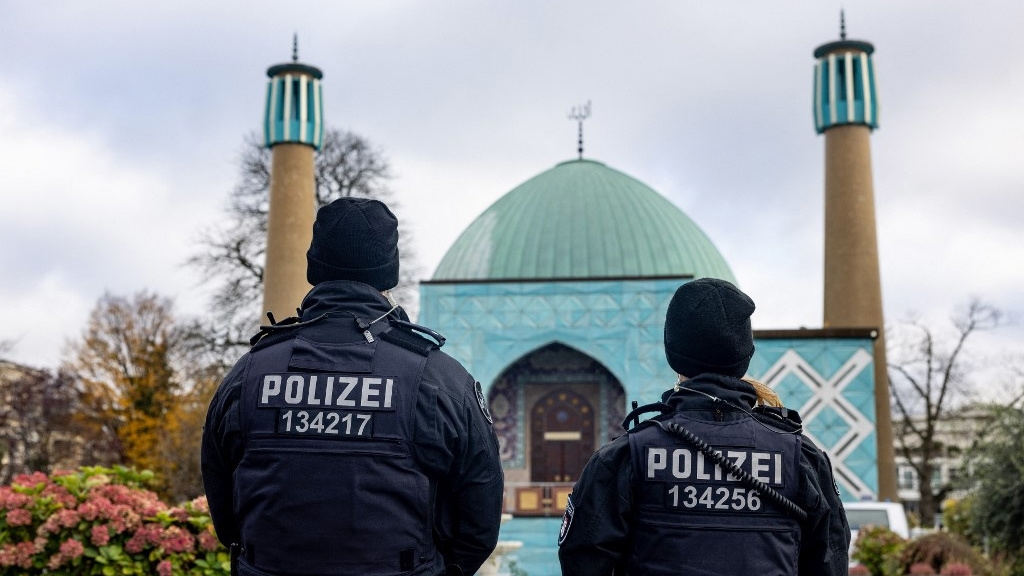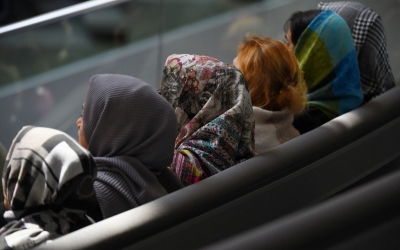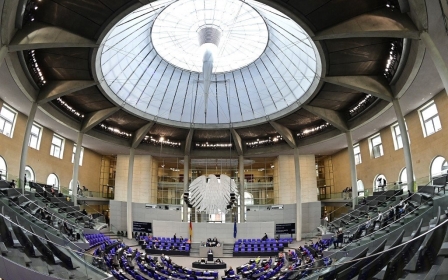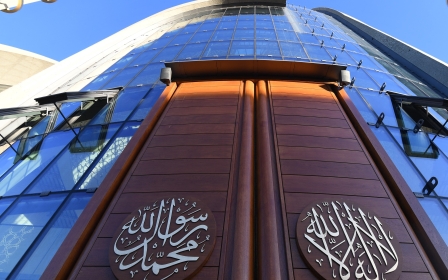How Germany is manufacturing the Islamist bogeyman

Germany finds itself at a historic turning point that could redefine what it stands for and what it wants to project to the world. As the far right makes significant electoral inroads, the country is in a deep identity crisis, facing serious structural economic and societal challenges.
German angst is spreading, and like so many times in the nation’s history, a bogeyman has quickly been found.
While in the Weimar Republic a century ago, demagogues and populists thrived on “othering” German Jews, today this “other” is the migrant - more specifically, those with Muslim backgrounds.
A decade of toxic discourse about migration and Islam pushed by the far-right agitators of the Alternative fur Deutschland (AfD) party has normalised and mainstreamed narratives and iconography that in other democracies would be considered hate speech.
A particularly shocking example was an official video posted by Bavaria’s interior ministry under the headline “The Salafism Trap”. The meme-style animation, which has since been deleted, showed a man in Muslim attire speaking to a young woman on social media about makeup.
New MEE newsletter: Jerusalem Dispatch
Sign up to get the latest insights and analysis on Israel-Palestine, alongside Turkey Unpacked and other MEE newsletters
The video then took a sinister turn, zooming in on the man’s evil laughter as his devilish mouth crushed the young woman, who was shown moving from dancing in a nightclub, to wearing a headscarf in public, to wearing a niqab and doing chores around the house, controlled by her husband in the background. Her face can be seen turning from happy to sad.
Such iconography resembles the antisemitic caricatures published by the Nazi pamphlet Der Sturmer in the 1920s and 1930s. The wicked smile, satanic gulp and sinister laugh stigmatises the “other” as evil.
The young Muslim woman, meanwhile, is shown as innocent, gullible and dependent - unable to make decisions for herself, as she is under the spell of the man, who forces her to cover up, thus reinforcing Islamophobic stereotypes.
Islamophobic conspiracy theories
The underlying narrative draws upon an old Islamophobic conspiracy theory. In a 1913 Orientalist essay titled “The Menace of Pan-Islamism”, Albert Edwards painted a dark picture of a global pan-Islamist conspiracy against western powers, presenting political activism in the name of Islam as a fundamental threat to the Occident.
As in other European countries, this broad-brush approach to political Islam has become widely accepted in the German mainstream, where any form of Islamic activism is regarded as a potential “gateway drug” to the world of extremism.
The Islamist bogeyman is a beautifully simplistic narrative in populist fear-mongering
Mirroring the story told in the video posted by Bavaria’s interior ministry, any contact with Islamic discourse is portrayed as automatically putting the participant on a conveyer belt from moderate Islamism to al-Qaeda-style terrorism.
The oft-debunked “conveyer belt theory” has been pushed by Israeli and Emirati networks in the counter-extremism space in an effort to securitise political Islam in all its diverse shapes and forms.
The Islamist bogeyman is a beautifully simplistic narrative in populist fear-mongering. Of Germany’s approximately 5.5 million Muslims, only around 12,000 are estimated to be radical Salafists, encompassing 0.2 percent. Still, whenever disenfranchised and alienated individuals commit a violent crime in the name of Islam - as happened two weeks ago in the city of Solingen - Germany’s political and media mainstream fan the flames of Islamophobia.
Shifting discourse
In an era when many Germans fear losing things hitherto taken for granted - the very definition of German angst - the “othering” of Muslims falls on fertile ground. With their country once again labelled the “sick man of Europe”, Germans see old certainties disappearing.
The industrial power hub is in decline, critical infrastructure in disrepair, overall prosperity and purchasing power in a perpetual spiral, and political leadership in disarray. At the same time, relatively low birth rates and an ageing population weigh heavily on Germany’s demographic future.
Many of the old post-war certainties of economic and industrial strength complemented the traditional ethnocentric elements of German identity after 1945. “Made in Germany” was a source of national pride for a country having to come to terms with the historic burden of the Holocaust.
For decades after World War II, German identity - always harder to define than in nations such as England or France, where state and territorial boundaries largely coalesced with cultural and linguistic boundaries - was no longer defined negatively by what Germans were not, but by what they did well.
Today, however, the negative interpretation is on the rise again, and not just in AfD circles. The Christian Social Union in Bavaria has for years retained an ambiguity about whether Islam belongs to Germany. Tolerance towards Islam in Germany has thus been widely tied to Muslims culturally assimilating, rather than just integrating, into German society.
Those who are visibly perceived as Muslim face prejudice, hatred and violence, not just from the extremist political fringes, but also from moderate parts of society.
The interior ministry’s video is just a symptom of a broader shift in German discourse on what it means to be German, and what role Islam plays in this debate. Rather than preventing radicalisation, such trends will only fuel alienation and disenfranchisement among the millions of Muslims who call Germany their home.
Perhaps without realising it, the country’s Islamophobic populists are playing into the hands of religious fundamentalists who can prey on the grievances of Muslims feeling ostracised from society.
The views expressed in this article belong to the author and do not necessarily reflect the editorial policy of Middle East Eye.
Middle East Eye delivers independent and unrivalled coverage and analysis of the Middle East, North Africa and beyond. To learn more about republishing this content and the associated fees, please fill out this form. More about MEE can be found here.






